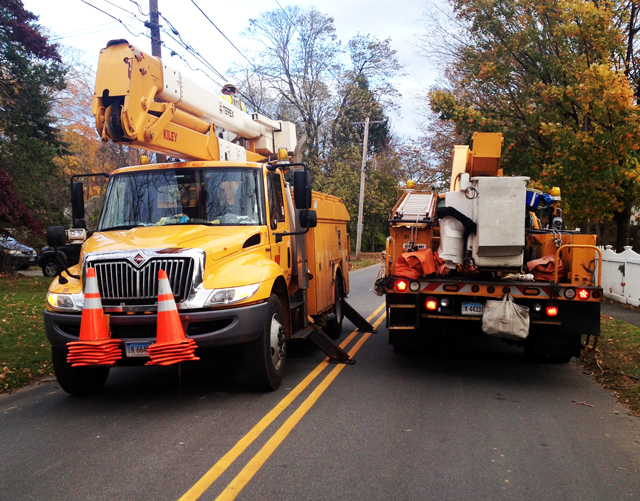 Living without power and heat for seven days in the aftermath of “Superstorm Sandy” reminds us how precious energy really is and how dependent we are on it to power, and warm, our homes and businesses. One need only look to communities where power and heat has yet to be restored to understand how quickly an inconvenience can become a real hardship. Clearly, something needs to be done on the macro level to update our electrical grid, and on the local level to prevent widespread power outages that seem to occur with every gust of wind.
Living without power and heat for seven days in the aftermath of “Superstorm Sandy” reminds us how precious energy really is and how dependent we are on it to power, and warm, our homes and businesses. One need only look to communities where power and heat has yet to be restored to understand how quickly an inconvenience can become a real hardship. Clearly, something needs to be done on the macro level to update our electrical grid, and on the local level to prevent widespread power outages that seem to occur with every gust of wind.
We’ll have to leave that work to the engineers, power companies and elected officials who, no doubt, are rethinking how we prepare for, and respond to, the superstorms that have become a semi-annual occurrence in the tri-state area. And, we’ll have to rely on climate scientists to determine whether these destructive weather patterns are a result of man-made global warming/climate change, or a natural occurrence, and what, if anything, can be done to reverse this trend.
In the meantime, the MAX Communications team is going to recommit itself to energy conservation. Putting our new campfire coffee-making skills away until the next blackout, this winter, we’ll focus on the small things that make a big difference when it comes to using energy responsibly.
- Experts agree that simple acts, like replacing incandescent light bulbs with CFLs, and turning lights off when we leave the room are a great first step.
- Likewise, turning down the thermostat by a few degrees and wearing a cozy sweater to stay warm will help conserve the fossil fuels, oil and gas, that heat our homes and businesses.
- We already carpool to client meetings, drive energy efficient cars and use public transportation, but we can take that one step further by making sure we combine our errands to save on gas.
- And, we can curtail the use of our energy guzzling appliances, like washing machines, dryers and dishwashers, to non-peak hours, to reduce the strain on the grid.
Think about this: If the 50 million Americans who lost their power after Sandy each made these small changes, it would make a big difference when it comes to conserving energy and preserving our natural resources.
